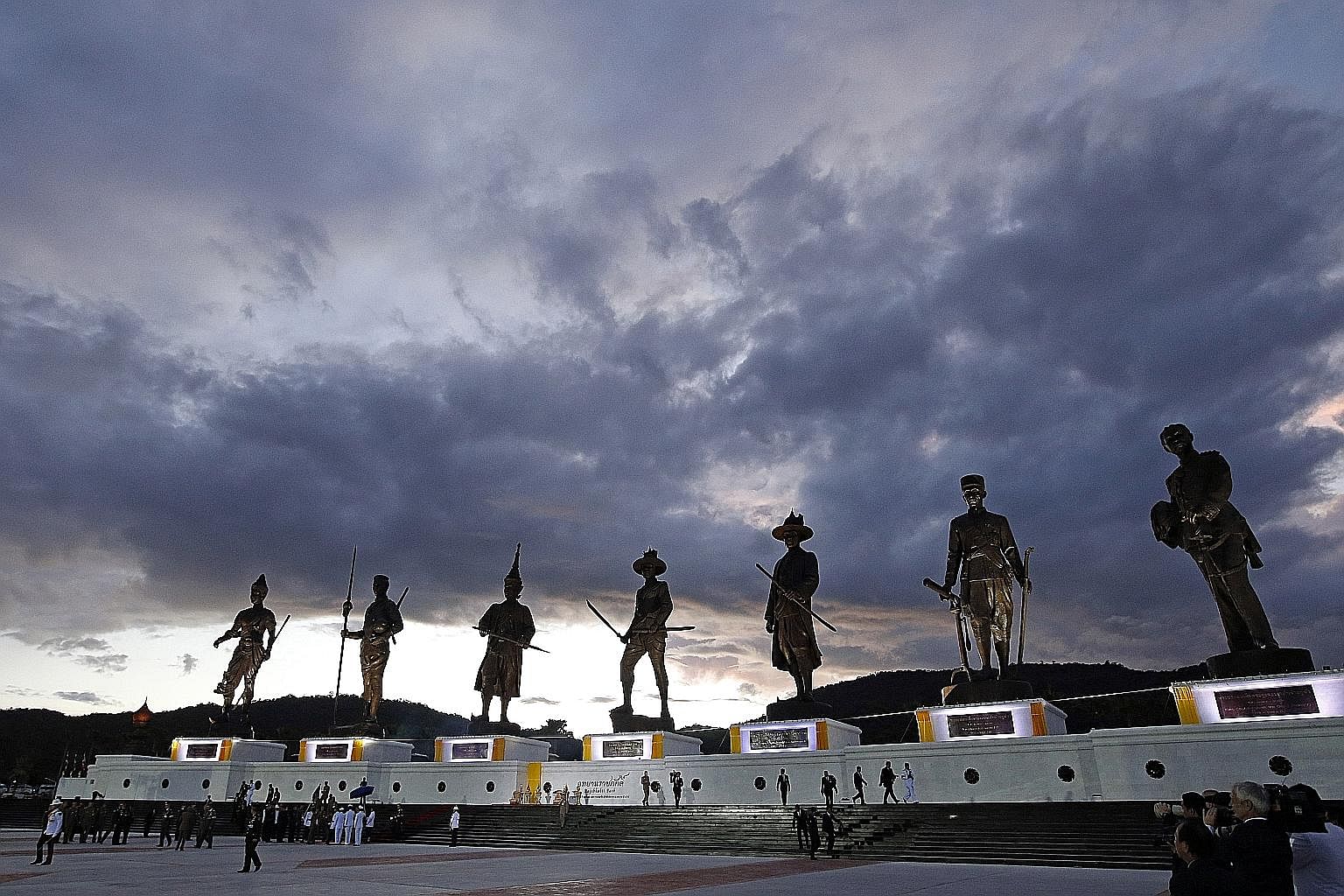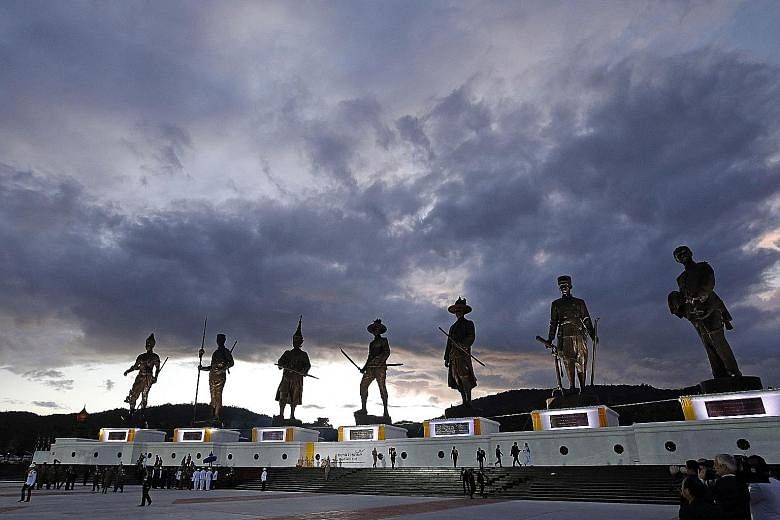Hua Hin is a seaside district in central Thailand best known for its beaches as well as the summer palace of the royal family. There, the Thai army chose to erect seven giant statues of past monarchs.
When plans for that project were first announced after the military coup in May last year, the army was still basking in the goodwill of a nation wearied by months of protests and political deadlock, and hoping for some control over the pervasive corruption.
One year on, the Rajabhakti Park project is turning into a nightmare for the military government. It has become a source of graft allegations that veiled threats and pre-emptive policing have failed to douse. It is drawing out erstwhile latent critics of the regime, and discomfiting its own supporters. And it is exposing fault lines within the junta itself.
The allegations centre on overpriced statues and landscaping, and demands for commissions that former army chief and current deputy defence minister Udomdej Sitabutr admitted were made by a private individual. The businessman was later made to return the commissions, he said.
Public discontent has forced the government to launch multiple probes. A one-week investigation by the army yielded a flat denial that soldiers were involved in any corruption. The defence ministry is conducting its own checks.
In the larger context, the sums involved in the 1 billion baht (S$39 million) Rajabhakti Park project - if graft is indeed proven - are easily dwarfed by some of the more high-profile corruption cases in Thai history. In 2013, for example, a former deputy interior minister was sentenced in absentia to 12 years' jail over his involvement in the purchase of overpriced firefighting vehicles totalling 6.7 billion baht. The kingdom scores just 38 points out of 100 in Transparency International's assessment of public sector corruption.
But the starkness of the military government's prevarication - when squared with its fervent anti-corruption rhetoric - has turned the project into a symbol of the ills of unfettered power. With elections postponed till 2017 at least, it remains in sole control.

"People believed the military government could do good, compared with an elected government," says Chiang Mai University sociologist Kengkij Kitirianglap. "How can the military government claim it wants to clean up everything, and then do this?"
Indeed, the cracks are starting to show. General Udomdej has so far rejected calls to resign. But Justice Minister Paiboon Kumchaya, the recently retired deputy supreme commander, appeared to break ranks with his junta peers when he told Thai media last week: "There's certainly corruption, everyone knows that there's corruption in it, so how can I say there's none?"
This prompted a terse rebuttal from Gen Udomdej, fuelling talk about the role of backroom military politics in this entire saga.
Meanwhile, the military is pulling out all stops to keep critics away from the park. Two leaders from the "red shirt" movement aligned with the ousted civilian government were detained on their way to inspect the park. On a national holiday earlier this month, the military abruptly closed the park and arrested another group of activists headed there. It has since been reopened.
At least two men have been arrested for sharing a Facebook graphic about the park. They have been accused of lese majeste, sedition and computer crime. One of them faces a lese majeste charge for reportedly for making a sarcastic comment about King Bhumibol Adulyadej's dog.
The last issue has raised particular controversy not just because insulting the monarchy carries a maximum 15-year jail sentence on each count- but also because sentences have become far harsher under military rule.
Officials have also warned those clicking "like" on an offensive Facebook page can also be charged.
An exasperated deputy prime minister Prawit Wongsuwan told reporters last week : "Please stop mentioning this already. It damages confidence a lot."
If the rate of public criticism is any indication, the lack of clear answers will do little to silence the questions.


